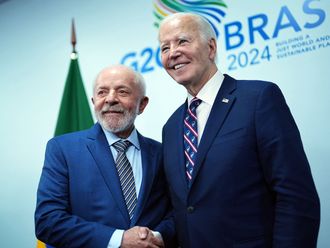Manama: Kuwaitis and Kuwait-based residents are pushing for the naming and shaming of a local company that sold imported chicken sausages that contained pig fat during Ramadan.
In online comments and in microblogs, several people urged the local authorities to take immediate action by naming the local food distributor, barring it from importing food stuff and ending commercial deals with the company in Brazil that exported the sausage.
“The concerned company/distributor must be heavily punished and barred permanently from all sorts of import/sales,” a commentator, Jamil Hashmi, wrote online.
The anger was compounded by the sale of the sausages during the Muslim sacred month.
On Sunday, the Municipality of Kuwait recommended the revocation of the food company’s commercial licence.
The recommendation was issued to the ministry of commerce after laboratory tests confirmed that the company failed to comply with the local regulations and to wait for the approval of the competent authorities before marketing the imported products.
The company that was not named is believed to have imported 3,000 boxes of chicken sausages from Brazil and started marketing them without waiting for the results of the customary chemical and bacteriological tests on food and dairy products in a blatant violation of the local laws.
A visit by the ministry to the stores revealed that 1,800 cartons had been distributed to stores, prompting officials to order a closure to stop further sales and to file a formal complaint to the commercial prosecution. Municipality inspectors were dispatched to withdraw the boxes that had been distributed.
Company officials have reportedly said that they were not aware that the sausages contained pig fat and relied on the assurances from the Brazilian food maker that they were “clean.”
Muslims do not eat pork and companies exporting food to the Gulf Cooperation Council (GCC) countries are required to ensure that the food is halal and that it was prepared according to Islamic law.
Several GCC citizens and Muslims living in the region have called for establishing food companies in the Gulf to ensure that there are no abuses and that all the food labelled as halal does comply with the Islamic rules.












